|
It's easy to reflect philosophically on the election when you win. Sweep in fact. And it's nice to be able to listen to the news again. Last I heard, estimates were that this election cost six billion dollars. Six billion. Dollars. That's a lot of really good schools. Especially since very nearly everyone already knew who they were voting for before anyone had spent a penny. And especially since in most states it didn't matter anyway. What I've been thinking is that the technology inGoodbye For Now could have saved everyone a lot of time and money. The idea behind RePose is that it reads your emails and tweets and FB posts and such and figures out 1) who you should be dating and 2) the sorts of things you say and how you say them. It could also, far more easily I expect, figure out who you're going to vote for. Even better, it can figure out who you should be voting for. You may be undecided, but the software knows. Think of the money we could save. Think of the time and effort and energy. Obama must be exhausted. The man had to run for president while also being the leader of the free (and not so free) world. This is like pitching game seven of the World Series during halftime of the Superbowl you're quarterbacking. It defies belief. And much respect to Nate Silver, but I wonder what the miracle is here. That he was right? Or that the answer was knowable? Much has been discussed (in, say, census conversations) about whether actually asking everyone is the best way to vote/count/decide. If we already know, why/how do we ask? There are answers to that question, but they're not easy and they're not quite being widely discussed and they're not bipartisan, which makes them even harder.
Washington state is entirely vote-by-mail now, so in fact I voted a month before election day. I missed going to the polls because there is great camaraderie in standing in line for several hours with one's neighbors attempting to do something civic. My neighborhood is very African-American which made waiting to vote for Obama that much more stirring. I also remember voting with my mom when I was very little, her bringing me behind the curtain with her and letting me pull the lever -- that's stuck with me, and it would be nice for D to have that experience, that memory, and that civic understanding. Would it be as nice as it is not to have to stand in the rain for three hours waiting to vote? No. As nice as it is not to have to miss a day of work to vote? No. As nice as it is not to have to find daycare in order to vote? No. As nice as it is to be able to vote even if you can't get to the polls? No. So I'm with my once and future president on this one: we have to fix that. I've been thinking about what we all experience the same way and what's different for everyone. I've been thinking about it because the two biggest, most demanding, most brian-occupying things in my life right now fall into the latter category: books and parenthood. I had been a mother for about an hour and a half -- on a 12-hour flight home from Korea which is itself another story -- before I realized children are all different and therefore all assumptions I had which began with phrasing such as, "When I'm a mother I will never..." or "Good parents always..." or "My children will never do that due to my superior parenting skills and general attitude as a human" were in fact a load of shit. Parenting seems like it's going to be a universal experience. It seems like one of those things that brings people together and unites us all. It seems like there are standards of good practice which will apply across the board. It isn't true. It isn't even almost true. In some ways, this is very freeing. I am now nearly judgement-free where parenting is concerned. Think Gatorade is a better choice than milk for your infant? Maybe. Prefer to dress you kid in a plastic trash bag than in clothes? Sure saves time. I say no to kids and guns and to Halloween costumes which equate children with sex. Otherwise, all bets are off. And books. You know why they say there's just no accounting for some people's taste? Because there's not. Lots of books are bad. Lots of books that are bad -- that I know are bad -- garner great reviews, sell millions of copies, and/or are beloved by otherwise seemingly reasonable people, thereby encouraging more bad books. And conversely, lots of books are good, and it seems like nobody knows it but me. In contrast to parenting, I am right about books, and everyone else is wrong. The books I like are good, and the books I don't are bad. I have seriously great taste in literature. This is true. Pissing into the wind. But true. In contrast, everyone experiences weather the same way. NYC darkens, floods, and we all feel either a) wet or b) helpless/empathetic/terrified/hopeful/appalled/alarmed/intrigued/ashamed which is something of a complicated emotion to be shared by everyone all at once. This is true of less dramatic weather too. As a writer, I find weather to be useful shorthand for all sorts of things. As a human, I find myself flirting daily for nine months a year with moving somewhere where it isn't raining. There is a reason why weather is the stuff of small talk. It's the thing we all share, not just the experience but the experience of the experience. I can't think of another thing about which this is so true.
When my husband and I moved into our current home seven years ago, we set up our four big bookshelves and then unpacked books onto them. When they got full, we did creative things like pile books on top of the bookshelves, and on the lips of the shelves in front of other books, and on and under chairs. Then we were out of bookshelf space, but we still had boxes and boxes of books. We couldn't buy more shelves because we had nowhere to put them (it's a small house). So into the attic they went. Last holiday season, we made a Christmas tree out of books in order to give more books someplace to be. We didn't use all our homeless books, but we used some. The tree is taller than I am. And it is still up. (For there remains nowhere else for the books to live.) This December, we might build a forest. We're that festive. (Or have that many books. You decide.) What? Your tree toppers aren't a baseball and a Shakespeare action figure? How come? The beauties of having books on hand are many, but the best is this: sometimes you need to consult a book for one reason or another, and instead of going to the library or the bookstore or the internet, you just go to your shelves and there it is. And not only is it there, but it smells like it did last you were reading it and so transports you right back to that time and place. Or some sand falls out because you last read it on the beach in Hawaii. Or a bookmark flutters out to remind you of the little shop where you bought it in London or the play you went to the night before you started it and whose ticket stub was then repurposed as a placeholder. And you've already made notes, written in the margins, underlined great passages, noticed smart connections. In fact, it's downright creepy the number of times I go to a book to look up something that has just this minute dawned on me only to realize that, nope, I've already written down that idea years ago right there in the margin. Once, I was reading about a book online which sounded interesting then on my way to the bathroom sometime later walked past my bookshelf where not only did I notice the book already there but found it already marked up, full of copious notes, and me with no memory at all of having read it. (Such useful memory-holes also mean I get to rematch tv shows as if for the first time. It's awesome.) And never mind I sometimes don't remember books I've read. I can often remember, years later, roughly where on a page and roughly where in a book a certain passage appears. So I can usually find a certain quote by flipping through because I remember that it was in the book's first third and on the top of a righthand page. And likely as not I've bracketed it and put exclamation points there from the first time through. My memory of books is tactile, olfactory, scavenged, and visual. Can't do any of that with an ebook my friend.
It is therefore very frustrating when I come up with a book I need to read/reread/consult/flip through, a book I know I own, and yet I can't find the damn thing. Is it in the tree? Can it be removed by jenga-ing it out and replacing it with a similarly-sized volume? (Often, I find myself in the book tree corner saying things to my husband like, "Let's go hiking this weekend. Find me an Inside Out Washington sized book.") Or is it still in a box in the attic? Or have I leant it out to someone? Or has it simply been lost in years of moving, packing and unpacking and repacking, shuffling books around and over and under and behind furniture, ready to reveal itself, perhaps, next time we move? ATTN EVERYONE: I need a new, larger house to buy and my copies of The Curious Incident of the Dog in the Night-Time and About A Boy. If you have borrowed either of the latter, please return -- no questions asked. If you are in possession of the former, we might ask a few questions -- you know, like have the place inspected -- but we're pretty easy. Built-in bookshelves a plus. Thank you. It's Banned Books Week, a time to give thanks for your reading freedoms and to consider that they are not shared by all. Lots of my favorite books are on frequently banned book lists (go figure), but at the moment, the one I read most frequently is And Tango Makes Three. Written by Justin Richardson and Peter Parnell (writer and producer on The West Wing) and illustrated by Henry Cole, it tells the true story of two male penguins in the Central Park Zoo who become first a couple and then parents together. The book explains that usually penguin couples consist of one male and one female, but Roy and Silo spend all their time together and show all the behaviors of other penguin couples. When the heterosexual penguin couples sit on eggs, this couple finds a rock for their nest. Seeing this, a zookeeper finds a heterosexual penguin couple with more eggs than they can care for and puts the extra egg in Roy and Silo's nest. Roy and Silo take turns keeping the egg warm, and when it hatches, Roy, Silo, and the baby, Tango, are a family. I live in Seattle, a pretty gay and gay-friendly city, and I love this book's message that, while most two-parent couples are made up of one mommy and one daddy, some are made up of two mommies or two daddies instead and that's great too. But what I really love about the book is the message that families are made by love and caring, not blood. My daughter is adopted. Like Tango, she needed adoptive parents because her birth parents couldn't care for her. And like Silo and Roy, my husband and I were thrilled to welcome her into our family. I love And Tango Makes Three because I love its message about different ways to make a family. My daughter loves it because she loves penguins. I don't know for sure I suppose, but I bet it's oft banned for the former reason rather than the latter. If people wanted the book banned because they hated penguins, that would be mean (penguins are, obviously, awesome) but far less upsetting than the actual case: the people who want this book banned don't want kids to know that some parents are gay, don't want kids to know that gay people can be a family, don't want kids to know that there are lots of good ways to make a family rather than just the one. Depriving kids of that knowledge hurts them and me and you and families like mine which are non-traditional. And frankly, depriving kids of knowledge pretty much sucks in general. Certainly there are advanced topics -- say genocide or pandemic disease -- they're probably not ready for, but surely love and family don't fall into that category. I say more love, more knowledge, more permutations that are also okay, more families that count, more books, more literate knowledgable kids. And more penguins.
Here's something that's awesome: when random people you don't know write to you out of the blue to tell you they love a book you wrote. Twenty years ago if you read a book and wanted to tell the author so, I guess you went to the library, did some research (microfilm/fiche of articles written about that author that might mention a hometown by way of local color?), figured out where he/she probably lived, located a white pages from said hometown, and crossed your fingers the address wasn't unlisted. And hand wrote a letter. I have a borderline unhealthy amount of author-worship myself and did even as a child, and it's not just that I never did this; it never even occurred to me to do so. Nor anyone I know. My sister and her friend Sharon used to write love letters to Kirk Cameron pledging marriage. But no one I knew ever wrote to an author pledging so much as admiration. Now the research involved in locating an author is a .19 second google search. If you read your books as e-books, sometimes the link is actually embedded, so it doesn't even take that long (what will you do with your extra .19 seconds?). So lots and lots of people take a moment after finishing a book to look up the author. In fact, I wonder if it's most. And lots of those people take a few minutes or a little more to write an email or post on my FB wall or send me a tweet as to how much they like the book. This is, of course, gratifying in the extreme, and I am always very grateful. I knew I'd get some of those emails from my experience with book #1. What I didn't count on this time was how sad some of the letters would be, how downright heartbreaking. The book is about mourning, and a lot of people have written to me about their own losses, and those are very sad. Topically, I've gotten some emails from tech folks too and some from doctors, but the best/worst are the heartbreaking ones. I worked very, very, very hard to consider thoroughly and represent carefully mourning and loss from a variety of perspectives. In fact, though I didn't (and still don't really) know who these note-writers are, I thought of them while I was writing. I kept in mind always parents who lost kids to leukemia and brothers who lost brothers in car accidents and wives who lost husbands too early and what a shit cancer is. So I am grateful that this book gives some comfort/solace/recognition/support/diversion/remembrance to people who see themselves in it. But I am very, very sorry too. Meantime, if you've read the book and taken some time to write me a personal note about it, thank you. It means the world. P.S. That's not really my sister up there. Here's my actual sister (with my actual nephew). Kirk should be so lucky. P.P.S. Do you look up authors upon finishing their books? Do you usually drop them a note some way or other if you liked it? Do you ever write to authors of books you hate to tell them so?
As you may or may not recall, before this book, I wrote another one. The Atlas of Love. Not a title I chose. It has on its cover -- both hard and paper -- a woman holding a baby. I didn't choose it either. It looks to me like a book about parenting. The Atlas of Love is not a book about parenting. It looks to me like the child is obliterating entirely the identity of the woman holding it. The Atlas of Love is about maybe the opposite of that. An early cover mockup had a naked baby (overhead shot from behind -- i.e. butt up) crawling across a bed...but Walmart won't carry books with nudity on the cover. An early cover mockup was yellow with books, but yellow clashed with another cover B&N was planning to stock at the same time. People like the cover we ended up with, so okay. People tell me they bought the book because of the cute baby on the front, so fair enough. Baby: cute enough. Dress: adorable. But the cute baby on the front is blond, and the baby in the book, in my mind, is decidedly not blond. In early drafts, Jill, the baby's mom, was in fact African-American, but this yielded some problems. Mostly those problems were that you can't write about race incidentally in this country right now. You can mention offhandedly that a character is a redhead and never revisit or consider that fact or its ramifications ever again. It's like describing the weather or a chair. But you cannot offhandedly mention, by way of giving descriptive visual details on a character, that she's black and then not write about that fact. A lot. This, of course, is because being African-American affects one's life roughly 2 to the millionth more times than having red hair does (in this country at least) and that race generally impacts and indicates more than hair color. Fair enough. In any case, I did not want to write primarily about race and found I couldn't write incidentally or even secondarily about or around race. Instead, I went to some lengths to describe no one physically in the book. I didn't indicate hair color or race or body size or eyes or anything really. Of anyone. I left it up to the reader. My cousin points out that this is in part because I myself don't much notice or judge people based on what they look like -- I would truly be the world's worst eyewitness to a crime. And as a reader, I hate being told what things and especially people look like. And I suppose one can assume some things: if these characters were, say, 400 pounds overweight, they'd have mentioned it, and it would have a noted effect on their daily lives. So they must be neutral, whatever neutral looks like to you, and the book takes place in Seattle where neutral is probably white, depending on their neighborhood. In my head, neutral is never blond, but that's just me. Just me, whosoever 'me' is, was exactly what I was going for. Anyway, here is the Brazilian cover: I love it. Just love it. And yellow! Suck on that B&N. And pretty. But mostly, the focus here people-wise, as in the book, is on the three friends. Let's go in for the close-up, shall we? To my eyes, one of these women is black; the other two I cannot tell. Perhaps to a Brazilian, the races of all three are immediately obvious. No doubt, those races connote something entirely different in Brazil than they would here anyway. Maybe the hairstyles mean something too. I don't know. In any case though, silhouetting them both posits an answer to what they look like and makes it impossible to tell. That (non)answer seems just about right to me.
Covers don't depict what's inside. We don't expect them to. I don't even want them to. My husband argues that the US cover's woman and baby are so clearly not the baby or any of the women in the book that it makes for an interesting dialogue. I also realize that no one thinks about the cover as hard as the author. If people think, "Cute baby," and pick it up to read the back, that's already a victory, and a sensible person (i.e. not the author) would choose 'sells books' over 'interrogates thematic challenges presented by the text' every time. Still...Obrigado Brasil! Eu adore o! I mean there are so many puns to make with "cover," it's hard to choose. Barnes and Noble goes with "Cover Stories," which is clever. Most accurate would have been "Choosing Cover," but that works less well. With Atlas, I could have gone with "Under Cover." In fact, more about Atlas covers in another blog post soon -- some pretty good stories there. Meantime, here's the piece I wrote for B&N about the Goodbye For Now covers in the US and UK. Can't wait to see the other 25 or so that are coming from lovely, hardworking, leap-of-faith-taking publishers around the world. I feel very lucky to be two for two so far -- I adore both of these covers. Which do you prefer? US Cover...you know, in case you haven't seen it elsewhere. UK cover...in case you aren't in London right now. Poor you. And me. Or what might you have done instead were you designing the cover for this book? I've been getting some emails from readers who admit to puzzling over the cover in the store -- they read the flap; they look at the cover; they don't get the connection until they read the book. I get that. Do you want covers to broadcast the...theme? Point? Setting? Surface plot? Hint at the twist? Portray the characters? Convey the mood? Throw you off track? Simply intrigue? Or just be pretty?
Or do you not give a crap about the cover at all? Especially now that such a large percentage of people only ever see the thing as a 1x1 inch jpeg on Amazon, is all the effort and angst and expense wasted on book covers? Can you imagine books without them? When paper books more or less become a thing of the past? What need we of covers if we have nothing -- no thing -- to, you know, cover? As you know (where you=a person on earth), the two big books of the summer are actually four: the three Fifty Shades of Gray books and Gillian Flynn's Gone Girl. Having just finished the latter, what I'm wondering is this:
Why the nationwide summer taste for abusive relationships? Not abusive relationships in a Lifetime movie kind of way. Much stranger than that. Consensual abusive relationships. Fantastical abusive relationships. Wildly complicated and begged for abusive relationships. Love so hopelessly confused as abuse, violent abuse, possibly murderous abuse, that you can't tell the difference. In re: porn, S&M, sex games, and make believe, I say sure, whatever floats your boat. That's not my question. My questions are these: Why do we say S&M? There's no "and" in sadomasochism. Sadomasochism isn't even two words. This is like if I said the republican party is incom & prehensible. Or rep & rehensible. Or I said something was discon & tinuous. (See what I did there?) Is the choice of these two texts coincidence or just coincident or something else? And really, (why) are we in this mood as a nation? When Todd Akin made asinine comments two weeks ago about "legitimate rape," the whole country went nuts. And hey, I get it. I didn't find that comment much more offensive or nonsensical than the rest of his party's current statements, but I get it. That said, his (badly stated) point wasn't really about the ambiguities of rape (his point was about making abortion illegal and unavailable, a position which should also offend us but does not). His argument wasn't really about gray shades of rape. But these four books are about exactly that. Maybe not fifty, but at least three or four. That strikes me as strange. Does that strike anyone else as strange? I've been getting a lot of questions about the movie of Goodbye For Now. And I've been more or less evading them, not because it's not a good question (it is!) but because a) said movie may or may not ever happen and I don't want to jinx it. And b) the movie is not my project. Some wonderful, talented, enthusiastic, lovely people are at work on it. Here's a little film they did previously. Maybe you heard of it. It's not my place to tell their tales about Goodbye For Now. That said, the details I know are exciting, promising, and the whole idea of one day seeing one's book turned into a movie...well, it's totally thrilling. The thing everyone wants to know is who I would cast in the lead roles, also a good question, but not one I can answer. Again, actual real people have been floated as possibilities, and now I can't get them out of my mind, nor do I want to hurt anyone's feelings or piss anyone off. Also, I can name like four actors off the top of my head. But really it's this: when I write, I'm not picturing people. Which is weird. My characters become so real to me that they speak for themselves. They demand things I never intend and am sometimes even reluctant to grant them. But can I see what they look like? I cannot. They exist someplace that's not visual for me. Generally, sight is considered our strongest, most relied on sense. When I write, I feel like I use it very little. Sometimes it's because it's telling not showing. Sometimes it's because it's one of the things I find very distracting and distancing when I read (Don't tell me what it looks like. I have a very clear picture in my head of what it looks like, thank you very much, and when you tell me I'm wrong, I just pisses me off.) But mostly it's this: I don't know what these people look like. Not really. If I ran into them on the street, I wouldn't recognize them. Pretty amazing for folks who spend hours upon hours whispering in my ear. It's kind of awesome actually. Anyway, to solve the "who would you cast?" problem, I've chosen dead actors to be in my would-be movie. Since the book is about recreating and reanimating dead people based on their archival footage, casting the movie with dead actors seems actually just about perfect. Here is a blog piece where I wrote about this for the lovely Marshal Zeringue. I'd take this cast (Philadelphia Story) straight up: Jimmy Stewart as Sam (you can picture Jimmy Stewart as a computer genius, right?), Katharine Hepburn as Meredith, Cary Grant as Dash? Yes please. I also like Paul Newman, circa right about here... ...for Sam's dad. (Or circa right about anywhere for anything at all.)
Anyone have other thoughts? Casts you'd like to see? Living actors you'd like to suggest for the (fingers crossed) film version of Goodbye For Now? You see? This is what I'm talking about. Freddie Mercury died in 1991. Then he was in the Olympics Closing Ceremony this week. Depending on which account you read, this is presented variously from, "A video played," or "The segment started with old footage," to "Freddie Mercury's hologram 'duets' with Jessie J." Some people expressed relief Mercury didn't go the Tupac hologram route (which, regular readers will recall, wasn't really a hologram either). Others offered seemingly unquestioningly and unproblematically that Mercury fronted for his band Queen at the Olympics this week and led the crowd in song. Here, so long as Youtube doesn't take it down, is the video: I have questions. And, as good luck would have it, answers.
Q: What is the difference between this (or Tupac) and going to a movie? A: Audience participation. He called; they responded. Q: Okay then, what's the difference between this (or Tupac) and a singalong screening of The Sound of Music or The Rocky Horror Picture Show? A: In those movies, actors are playing parts. Here, Freddie is really Freddie. Q: So it's a film but of something real. Like during Shark Week? A: No because it's live. Q: No it isn't. Freddie's dead. A: Yes, but the audience is both alive and live. Living, sure, but more importantly present. Witnessing the event, live. Participating in it. Q: So, like a play? A: No, because in that case we have actors playing roles again. And also, probably, those actors are alive. Q: Okay, then let me ask this question: what, practically speaking, is the difference between an alive-Freddie Mercury performing at the Olympics and a dead-Freddie Mercury performing at the Olympics? A: You see a projection rather than a person. Q: Not really. Either way, aren't you watching him on the jumbotron? A: Yes, but you see a little tiny mini him down front, depending on how good your seats are. Q: Yeah, but you still see that little tiny mini him down front. It's just not really him. You'd have to know to know though. A: Hmm. Yeah, hmm. My question is less: isn't Freddie Mercury just archive footage at that point? And more: isn't Freddie Mercury just as real as alive at that point? Why do we need to be present/alive to exist, perform, and even interact with the living? I hope that doesn't sound bleak for I mean it exuberantly. My point is simply this: so very much of us does exist in electronic archive, far far more of us than of poor pre-tech-boom, pre-social-media Freddie. The difference between actual us and that archive is, I suspect, stranger and weaker than we imagine. |
About The AuthorLaurie Frankel writes novels (reads novels, teaches other people to write novels, raises a small person who reads and would like someday to write novels) in Seattle, Washington where she lives on a nearly vertical hill from which she can watch three different bridges while she's staring out her windows between words. She's originally from Maryland and makes good soup. Archives
October 2023
Categories
All
|
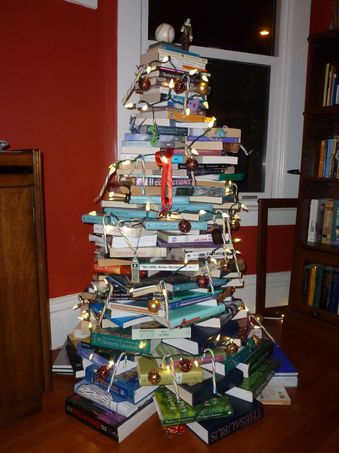
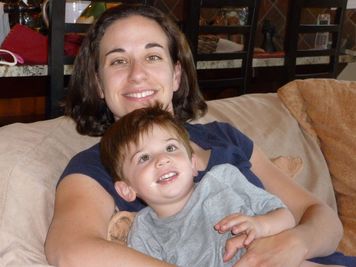
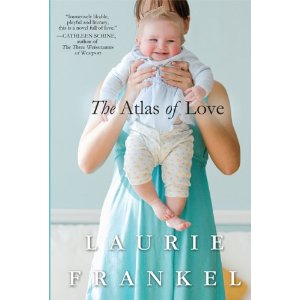
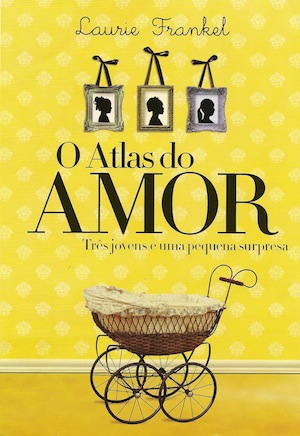
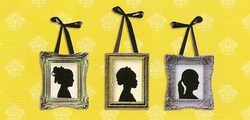
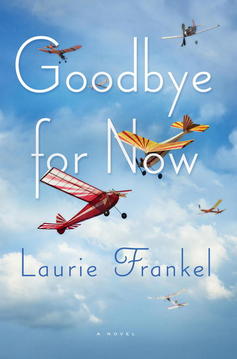
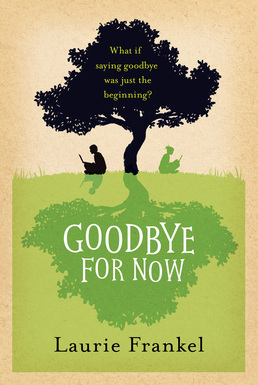
 RSS Feed
RSS Feed